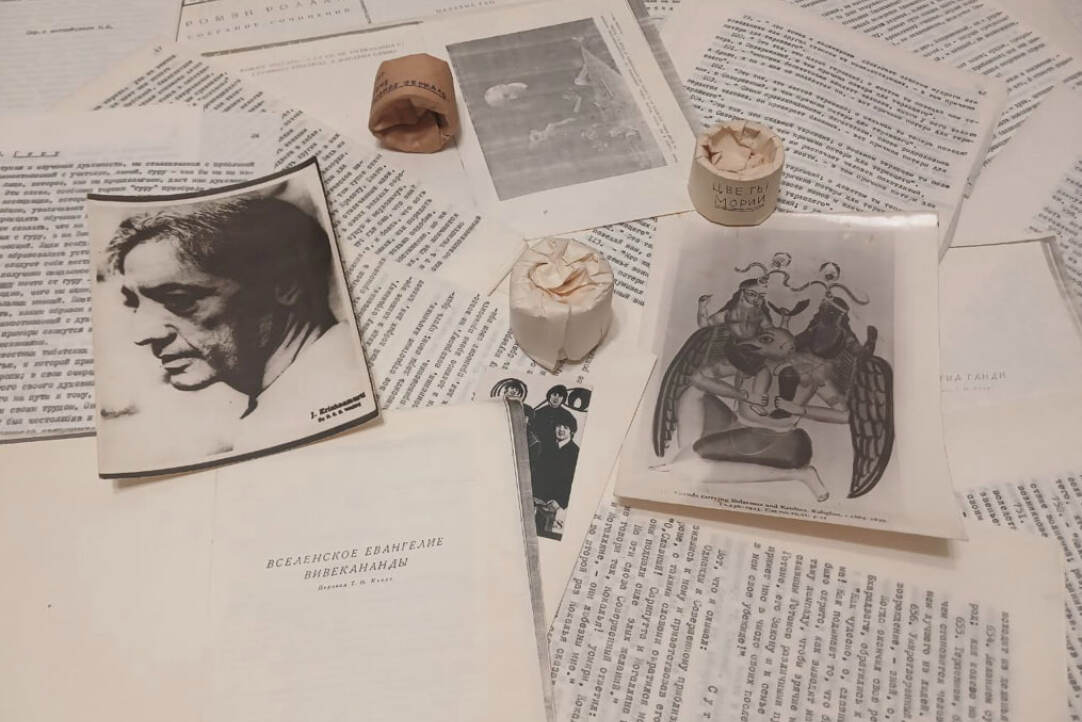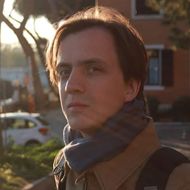HSE University–St Petersburg Senior Lecturer Delivers Online Lecture for Students of UPES University
How did Indian spiritual thought influence Soviet nonconformist art? Dmitry Kozlov, Senior Lecturer of the Department of Philology at HSE University–St Petersburg, devoted an online lecture to this topic. He told students and specialists of the School of Liberal Studies and Media at UPES University (Dehradun) about the cultural dialogue between India and the Soviet Union.

Dmitry Kozlov's lecture, 'Ivan Bodhidharma et al. Indian Spiritual Thought in the Cultural Imagination of Soviet Underground Art,' covers an understudied aspect of the cultural ties between the USSR and India—the influence of Indian spiritual thought on nonconformist art and literature in the Soviet period.

Dmitry Kozlov
Senior Lecturer of the Department of Philology at HSE University–St Petersburg
It's interesting for me to show how Indian religious doctrine and ancient poetry became tools for escaping late Soviet society. They served as a basis for a specific image of Indian culture and religion that could differ dramatically in detail from the original. But the main thing is that it was different from the common conception of what was acceptable in Soviet society.
According to Dmitry Kozlov, there have been several recent research projects devoted to how a demand for 'the extraordinary' existed in the formally rationalistic and materialistic Soviet society. Thus, practices of various yoga forms were supported by official Soviet media to a certain extent as 'traditional Indian gymnastics.' In the meantime, for many people, they became the first step towards studying religious philosophy and switching to unconventional spiritual practices.
'Non-traditional forms of medicine, physical self-improvement, and an interest in the unexplored were woven into the late Soviet culture and created a unique background which sometimes manifested itself in various works of art. Examples include songs by Vladimir Vysotsky and such films as Love and Pigeons (Любовь и голуби),' he explains.
Dmitry Kozlov emphasised the importance of further studies of the 'reverse side of citizen diplomacy' that flourished after India gained independence and the active start of Soviet–Indian relations under Khrushchev. 'I particularly appreciated the audience's question about specific "ambassadors of Indian culture"—students, researchers, people of art who came to the USSR and brought texts, ideas, and material objects which their Soviet friends later used in creative ways,' shared the senior lecturer from HSE University–St Petersburg.
As a response, Prof. Sudha Tiwari from UPES University will hold an open online lecture about the cultural ties between India and the USSR in the sphere of cinematography. The event will take place on April 4 and will be the next step in enhancing academic and cultural dialogue between the two universities.
The cooperation between HSE University–St Petersburg and UPES has been actively developing since 2023. Over this time, the parties have held a number of joint events, including a winter school devoted to the economic development, politics, and culture of India. The universities also signed an agreement on creating a double-degree programme in political science and opening a mirror laboratory to study student motivation.
In 2024, the parties agreed to carry out joint research in the sphere of climate changes in the Himalayas and develop master's programmes in design and finance.
UPES University was founded in 2003. It is one of the leading private universities in India, ranking 243rd in QS Asia. It features nine schools, including the School of Business, the School of Liberal Studies, and the School of Modern Media. The university is accredited by NAAC and recognised by the University Grants Commission. The university trains more than 13,000 students and has more than 1,500 faculty members. It offers more than 80 educational programmes at the bachelor's, master's, and PhD levels.

